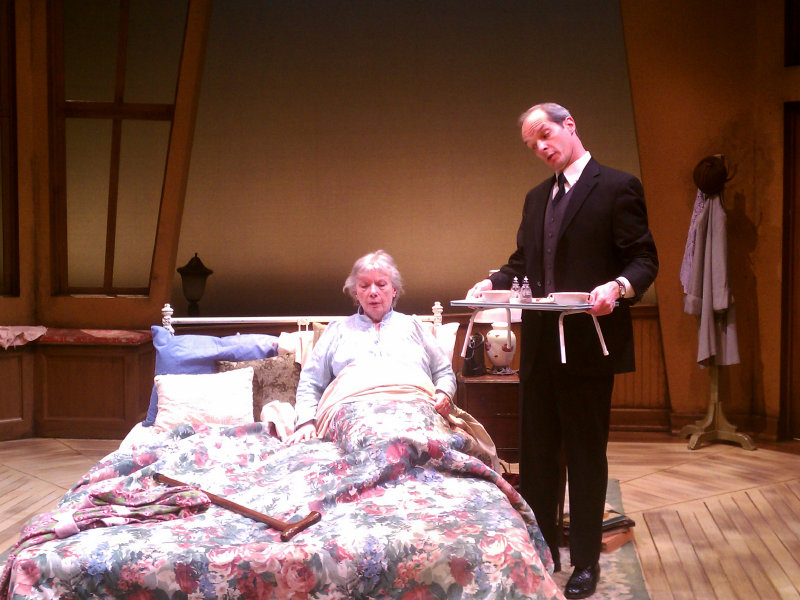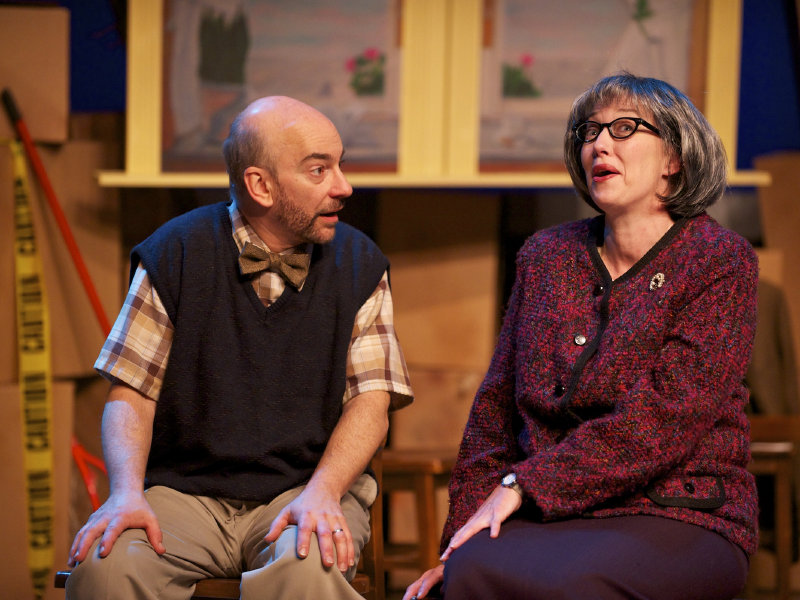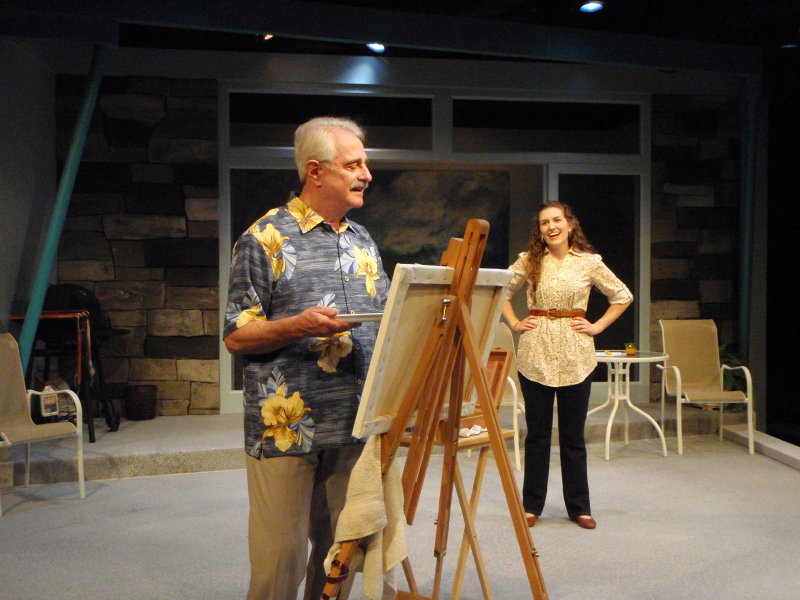Here's the good news about the Next Act Theatre production of "Vigil" that opened last weekend. The ageless Ruth Schudson follows up her crisply precise and on-the-mark work in the Milwaukee Chamber Theatre's revival of "Driving Miss Daisy" with an equally impressive but very different performance.
The sum total of the lines she speaks could be written on one side of a 4x6 index card, but she is continually expressing herself with unmistakable clarity. Schudson's face resembles a painter's canvas as she mutely brightens and darkens, widens and pinches it, conveying thoughts and feelings. It's a treat to watch her.
Here's the sad news about "Vigil." While Schudson is nearly silent and spends almost the entire two acts in bed, Mark Ulrich, a reliably strong and solid actor, is required to be manically verbal and physical. Without a payoff.
Knowing how well he can communicate with just an elevated eyebrow and a small rise in his voice, one feels only sympathy for him flailing about in this messy theater piece.
Here's the setup. Ulrich plays Kemp, a middle-aged bloke who quit his dreary bank job in another city after receiving a letter from his dying aunt Grace. He arrives in the elderly woman's bedroom bluntly proclaiming that he is looking forward to her speedy demise.
What should he do with her dentures after she is dead, he wonders aloud. Oooooh, the funeral music he has chosen for her is going to be soooo good, he declares.
But there is a problem here. The woman seems to be quite healthy. Her address is not on the grim reaper's itinerary, and Kemp is getting antsier by the minute.
He rants, raves and flaps around like an impetuous child in brief scenes separated by blackouts. Die already!
A year passes, and Kemp and the woman are still locked in this strange relationship, albeit in longer scenes. He has drifted into whining monologues about his miserable childhood, and we don't care.
"Vigil's" second act contains a sudden plot twist that briefly appears to be the play's aha moment. We've been working overtime in the audience, trying to connect the dots, find the meaning, understand why we have all gathered here on a February night. The turn is just a tease.
Canadian actor and dramatist Morris Panych wrote this piece of absurdist comedy. Maybe it's his statement about loneliness or his observation about stalemated relationships. Or maybe it's simply a tedious play.
Youngblood's new show and season ticket offer
The nonconformist nature of Youngblood Theatre is among its many charms, and the company is breaking the rules once again. For the first time in its short history, Youngblood is offering a four-show subscription series. That's standard.
But it is revealing the identity of only the first production, Will Eno's "The Flu Season," which opens March 1. Dates and locations of the other three offerings are also a mystery.
The troupe is calling it "The Leap of Faith" subscription. Priced at $55, the season ticket represents a small discount off the cost of four single tickets. More importantly, a subscriber gets first crack at tickets to all of the season's shows.
Youngblood usually performs in smaller spaces, often to capacity audiences.
"The Flu Season" is set in a theater and a psychiatric institution, and Youngblood's production will be appropriately performed in the old Columbia Hospital, now lyrically named Northwest Quadrant Building 4 by its present owner, UWM. The play is described as a dark comedy and reluctant love story.
Company members Tess Cinpinski and Andrew Edwin Voss are featured in the cast.
"Flu Season" author Eno is a Brooklyn-based playwright who has been described by The New York Times' Charles Isherwood as "a Samuel Beckett for the Jon Stewart generation."
Check out Youngblood's website for subscription series and "The Flu Season" details.
Damien has been around so long, he was at Summerfest the night George Carlin was arrested for speaking the seven dirty words you can't say on TV. He was also at the Uptown Theatre the night Bruce Springsteen's first Milwaukee concert was interrupted for three hours by a bomb scare. Damien was reviewing the concert for the Milwaukee Journal. He wrote for the Journal and Journal Sentinel for 37 years, the last 29 as theater critic.
During those years, Damien served two terms on the board of the American Theatre Critics Association, a term on the board of the association's foundation, and he studied the Latinization of American culture in a University of Southern California fellowship program. Damien also hosted his own arts radio program, "Milwaukee Presents with Damien Jaques," on WHAD for eight years.
Travel, books and, not surprisingly, theater top the list of Damien's interests. A news junkie, he is particularly plugged into politics and international affairs, but he also closely follows the Brewers, Packers and Marquette baskeball. Damien lives downtown, within easy walking distance of most of the theaters he attends.







